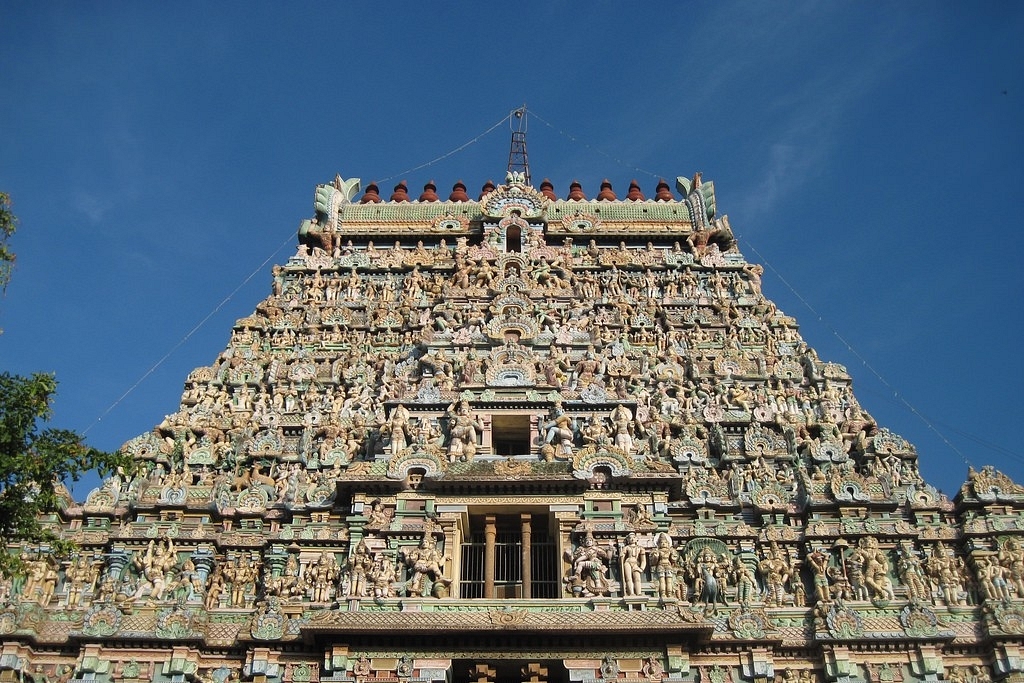Culture
The 'Paraiyar' On The Elephant: How Dharma Revives What Politics Relegated To The Pages of History
- Hindu organisations of Thiruvarur have finally been successful in reviving a traditional ritual of the Paraiar leader mounting the elephant that bears the deity.
- This also signifies the cleansing of the stigma created around the word ‘Paraiah’ by colonial forces.

Thyagaraja temple, Thiruvarur
The last three centuries have seen a unique phenomenon in India. Colonisation created impoverishment. This in turn created widespread social stagnation. The colonisers in turn essentialised Hindu culture and religion with the manifest ill-effects of social stagnation.
They projected colonisation as a 'civilising mission' that was liberating India from its own culture which was nothing but an oppressive culture of caste and untouchability and ruthless exploitation by religious doctrines such as Karma. Most educated Indians fell for this propaganda.
Connected with this is a term that became notoriously famous throughout the world. The term ‘Paraiah’ was used by the British as an equivalent of outcaste.
The term even entered the international vocabulary. This was done with such a ferocity that even well meaning Indians from other parts of India who have not known the Tamil situation have used it to mean outcaste.
In fact, with the settling of the British, the word had come to mean outcaste. And the community itself was ostracised by dominant sections of Indian society under colonial rule.
The term has been used as late as 2016 by the international media in the context of Indian Prime Minister Narendra Modi.
But how does Hindu Dharma itself view the term?
In Tamil Nadu, Thiruvarur is one of the holiest Vedic Shaiva Dharma sites. Tradition has it that the Shiva here was worshipped by Indra. Indra to worship Shiva again takes birth in the clan of ‘Parai‘ people.
‘Parai’ is the musical instrument held in high esteem by the Hindu tradition. None other than Aandal asks Vishnu for ‘Parai’ in her Thirupaavai. But, perhaps, because of some alien religious tendencies which despise music, the people of Parai fell into the space of untouchability.
However, Hindu Dharma would not approve of what Hindu society did. It is said that Shiva himself came in the form of an untouchable in a Yajna and those who could not recognise the divine in this form were cursed to experience the very same untouchability one noon every year on that particular day.
Indra loses his position of king of Devas because he had forgotten to worship Shiva. So, he is born into the clan of Parai in the holy town of Thiruvarur, and worships Shiva and regains his position.
So the Paraiar community is hailed as the community of Indra and the community leader at Thiruvarur is taken on an elephant along with the deity in a sacred procession.
This leader of the clan of Parai is hailed in tradition as ‘Aanai Erum Perum Paraiyar’ — the great Paraiah who mounts the elephant.
Unfortunately, like many traditional ceremonies, this ceremony too was discontinued for many decades or even close to a century. Neither the politicians who ruled Tamil Nadu nor the Hindu Religious Charitable and Endowments Board (HR &CE) cared to bring back these socially ennobling and elevating rituals of Sanatana Dharma.
However, this year, after considerable but silent hard work, some Hindu organisations spearheaded by the Hindu Temples Protection Committee have been able to renew this practice.
This will be followed by a seminar and presentations by many Hindu social leaders, activists and scholars on 2 March 2021 on the day of ritual commencement for the festivities of Panguni Uttaram (the coming Tamil month).
It is quite a challenging task to revive such a socially relevant ceremony. The fact that such a ceremony has been revived by Hindu organisations also shows that the stigma created around the word Paraiah by the colonial forces is, at last, being removed by the innate power of Sanatana Dharma, manifested in the actions of the Hindu organisations of Thiruvarur.
Introducing ElectionsHQ + 50 Ground Reports Project
The 2024 elections might seem easy to guess, but there are some important questions that shouldn't be missed.
Do freebies still sway voters? Do people prioritise infrastructure when voting? How will Punjab vote?
The answers to these questions provide great insights into where we, as a country, are headed in the years to come.
Swarajya is starting a project with an aim to do 50 solid ground stories and a smart commentary service on WhatsApp, a one-of-a-kind. We'd love your support during this election season.
Click below to contribute.
Latest